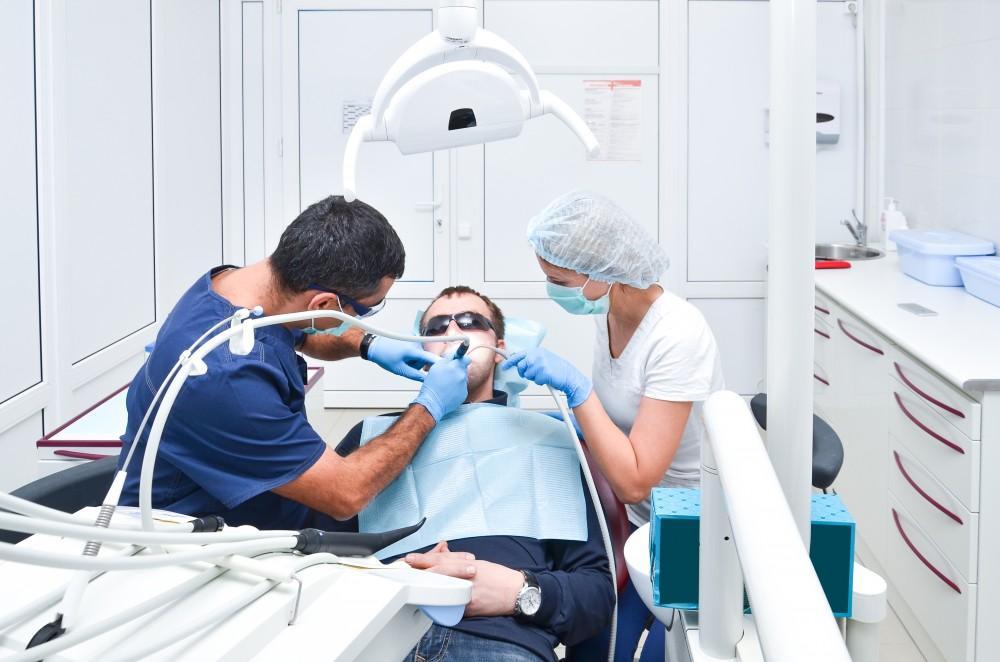If you’ve lost one, two, or even all of your teeth, you’re not alone. By the time Americans reach age 50, they’ve lost an average of 12 teeth, including their wisdom teeth.
Going around with gaps in your mouth isn’t good for your oral health, though. Those gaps can lead to:
- Bite misalignments
- Shifting of your remaining teeth into the spaces
- Loss of bone in your jaw
There are a number of different options to replace the missing teeth, but how do you know which one is right for you?
At Trident Dental in Houston, Texas, our expert team of dental providers offers two excellent choices for replacing teeth: dentures and dental implants. Each has its pros and cons. Here’s what you need to know about both.
Denture basics
Dentures are removable appliances, artificial sets of teeth used to fill gaps in your smile. They can replace just a few teeth, or even a whole mouth’s worth. They come in two types:
Removable complete dentures
Complete dentures replace a full arch (top or bottom) of missing teeth, or both arches at the same time. The prosthetic teeth are made from an impression of your mouth so they fit perfectly. They’re attached to an acrylic base, yet look and feel like your natural teeth.
The dentures rest on top of your upper or lower gumline, where your teeth used to be. They attach by suction, clasps, dental adhesive, or dental implants you already have.
Still, dentures could move a bit when you eat, speak, or even cough. They can also affect your ability to experience the full taste of food. And some of our patients experience chafing from their dentures.
You need to remove the dentures regularly for cleaning — brushing and rinsing just as you would your own teeth.
Dentures last an average of 10 years. The initial cost is far less expensive than other dental options like implants, but since dentures need to be replaced, you might find that they’re more expensive in the long run.
Removable partial dentures
Unlike bridges, which require the dentist to file down adjacent teeth to attach and support the appliance, partial dentures don’t require any enamel destruction.
This set of artificial teeth is bonded to a metal structure that slips in and out of your mouth and can be removed for easy cleaning. We can also attach snaps, one on the partial and one in your tooth root, that hold partial dentures in place better than full dentures.
Dental implant basics
Dental implants are also artificial teeth, but they’re fixed permanently in your mouth. They’re the closest option available to how natural teeth feel, look, and function.
They’re also the only tooth restoration option that preserves your natural bone. Because they’re fused into your jawbone and support a chewing surface above, they help stimulate healthy bone growth, something dentures can’t do.
Dental implants are a good choice when you have just one or a few missing teeth. The implants use a biocompatible titanium screw, which we surgically place in your jawbone and which serves as an artificial tooth root.
We then allow 6-8 months for the screw to fully fuse with the bone in a process known as osseointegration.
Finally, we attach a connector known as an abutment. It serves as the base to support an artificial crown that looks and acts just like your natural tooth. By filling the gap in your mouth, It prevents nearby teeth from moving, and it allows you to chew and speak normally.
There’s no reason dental implants can’t last you a lifetime. You brush and floss them just as you would your natural teeth, and you go twice a year for professional cleanings. Implants are more costly than either type of denture, but you may never have to replace them.
The takeaway
Choosing between either type of denture and dental implants to replace your missing teeth depends on a number of different factors, including:
- Number of teeth to be replaced
- Cost (short-term vs. long-term)
- Appearance
- Stability
We at Trident Dental can help you make the decision.
Are you missing teeth and want to fill in the spaces? Contact us to set up a consultation by calling or by scheduling online. You’re just a step away from reclaiming a natural-looking, healthy smile.

